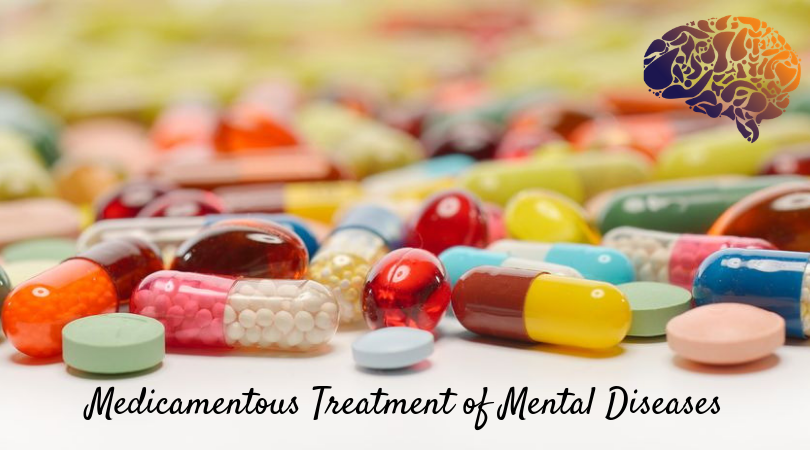Medicamentous Treatment of Mental Diseases
At the first stage, the psychiatrist will conduct a comprehensive examination of the patient. After such a screening, he will be able to make a preliminary diagnosis. From this moment, therapy starts. The treatment can include both medicamentous and non-medicamentous approach. The approach will depend on the diagnosis, stage and severity of the disease.
The doctor will prescribe the following medications if their patient needed treatment of mental diseases:
- Antidepressants. Medications in this category have various effects and mechanisms of action. All of them are united by the fact that they help restore a person’s mood during the depression, mental activity and relieve symptoms of grief, sadness, hopelessness, lack of interest in life and work.
- Mood stabilizers. They will help patients who have a regular and baseless change of mood from depression to emotional overexcitation. Such drugs can be combined with drugs from the previous group or used on their own.
- Antipsychotics (antipsychotics). Depending on the severity of the problem, the so-called small or large antipsychotics are used. They have different mechanisms of action and orientation of the therapeutic effect.
- Tranquilizing (sedative) agents. They help to suppress anxiety, fear, the aggressiveness of patients, relieve the state of constant nervous tension, stabilize sleep and have other useful properties.
- Sleeping pills.
- Nootropics are drugs that positively affect the function of memory and attention.
- Vascular drugs will improve blood circulation to the brain.
- Drugs with a specific mechanism of action for dementia and Alzheimer’s disease.
Complex methods are usually used in the treatment of mental disorders. It is a combination of various types of procedures and the appointment of certain drugs that can provide effective assistance that will help a person return to a normal, full life.
It is worth noting that after successful treatment, you must carefully monitor the relapse of the disease. Do not quit treatment as soon as you manage to cope with the main symptoms of the disease. It is necessary to undergo a course of rehabilitation after a disease and then be observed by a doctor who will be able to identify an oncoming relapse in time and stop it.
Much depends on the desire to be healed and return to a normal, full life. Indeed, if the patient does not strictly comply with all the recommendations that the doctor gives him, monitor his own condition, increase immunity, learn to avoid stressful situations, there may not be any sense from treatment. It is very important to follow all instructions and recommendations.
In any case of mental disorders, you need to get professional advice and the appointment of the right treatment. It is almost impossible to defeat such a problem on your own.